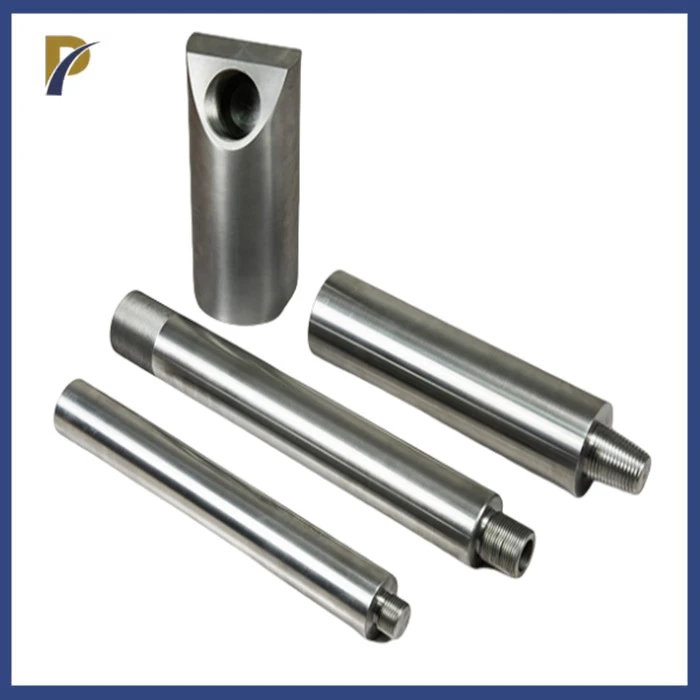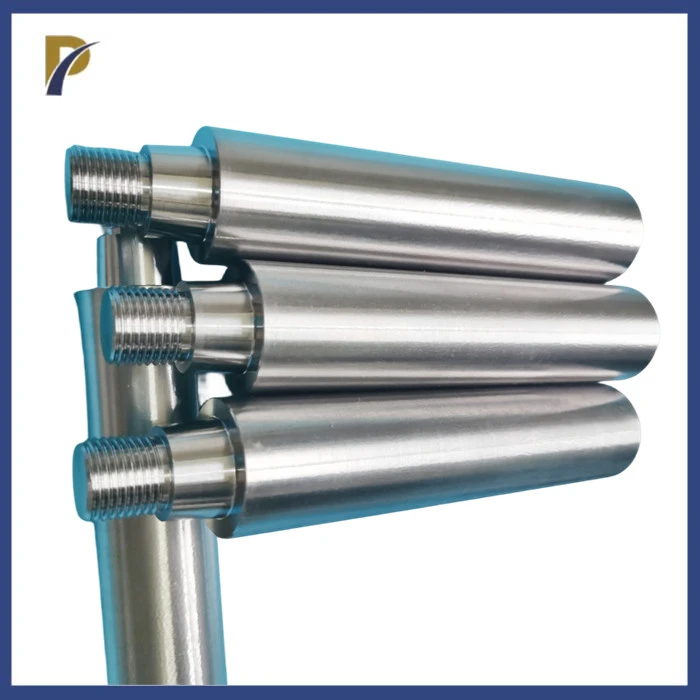In the realm of glass manufacturing, the choice of materials for various components is crucial to ensure efficiency, durability, and quality output. One such critical component is the electrode used in glass furnaces. Molybdenum electrodes have emerged as a preferred choice for many glass manufacturers due to their unique properties and advantages. This article delves into the reasons behind the widespread use of molybdenum electrodes in glass furnaces, exploring their characteristics, benefits, and impact on the glass production process.
The Unique Properties of Molybdenum
Molybdenum, a gleaming white metal with the chemical symbol Mo, has a remarkable mix of properties that make it priceless in high-temperature applications like glass furnaces. Understanding these properties is essential to comprehending the significance of molybdenum electrodes' widespread utilization in the glass industry.
High Melting Point and Thermal Stability
One of the most wonderful properties of molybdenum is its astoundingly high dissolving point of 2,623°C (4,753°F). This characteristic permits molybdenum electrodes to keep up with their primary trustworthiness even in the outrageous temperatures found in glass furnaces, which can reach up to 1,700°C (3,092°F). The thermal steadiness of molybdenum guarantees that the electrodes stay functional and proficient all through the glass dissolving process, adding to consistent heat distribution and energy move.
Excellent Electrical Conductivity
Molybdenum boasts superior electrical conductivity, a crucial factor in its application as an electrode material. This property enables efficient transfer of electrical energy into heat within the glass furnace. The high conductivity of molybdenum electrodes allows for precise control of the melting process, ensuring uniform heating and reducing the risk of localized hot spots that could compromise glass quality.
Resistance to Corrosion and Chemical Attack
Glass furnaces present a harsh environment, with molten glass and various chemical compounds posing potential threats to electrode materials. Molybdenum's inherent resistance to corrosion and chemical attack makes it an ideal choice for this application. The metal's ability to withstand the aggressive nature of the molten glass and associated chemicals ensures longevity and reliability of the electrodes, reducing maintenance requirements and production downtime.
Advantages of Molybdenum Electrodes in Glass Furnaces
The special properties of molybdenum convert into a few huge benefits when utilized as electrodes in glass furnaces. These advantages have added to the far and wide reception of molybdenum electrodes in the glass producing industry.
Enhanced Energy Efficiency
Molybdenum electrodes add to further developed energy productivity in glass furnaces. Their astounding electrical conductivity considers proficient change of electrical energy into heat, limiting energy misfortunes. This proficiency lessens functional expenses as well as lines up with developing ecological worries and supportability objectives in the glass business. The utilization of molybdenum electrodes can prompt critical energy reserve funds over the long run, settling on them a practical decision for glass makers.
Improved Glass Quality
The uniform heat distribution facilitated by molybdenum electrodes plays a crucial role in enhancing glass quality. By ensuring consistent temperatures throughout the molten glass, these electrodes help prevent defects such as bubbles, inclusions, or uneven composition. The result is higher-quality glass products with improved optical and mechanical properties. This aspect is particularly important in the production of specialized glass types, such as those used in the electronics or automotive industries, where precision and purity are paramount.
 |
 |
Longevity and Reduced Maintenance
The durability of molybdenum electrodes in harsh furnace conditions translates to extended operational lifespans. Their resistance to corrosion and high-temperature deformation means that molybdenum electrodes require less frequent replacement compared to alternatives. This longevity not only reduces direct replacement costs but also minimizes production interruptions due to electrode maintenance or replacement. For glass manufacturers, this results in improved productivity and reduced overall operational costs.
Considerations in Using Molybdenum Electrodes
While molybdenum electrodes offer numerous advantages in glass furnaces, there are certain considerations and challenges that manufacturers must address to optimize their use.
Initial Cost and Economic Factors
The initial cost of molybdenum electrodes can be higher compared to some alternative materials. However, this higher upfront investment is often justified by the long-term benefits in terms of energy efficiency, reduced maintenance, and improved glass quality. Glass manufacturers must conduct thorough cost-benefit analyses to determine the economic viability of molybdenum electrodes in their specific operations. Factors such as production volume, energy costs, and quality requirements play crucial roles in this decision-making process.
Technical Considerations in Implementation
Implementing molybdenum electrodes in glass furnaces requires careful technical consideration. Factors such as electrode design, placement, and power supply configuration must be optimized to fully leverage the benefits of molybdenum. This may involve collaboration with electrode manufacturers and furnace design experts to ensure seamless integration and optimal performance. Additionally, operators may need specialized training to manage and maintain molybdenum electrode systems effectively.
Environmental and Safety Aspects
While molybdenum itself is not considered highly toxic, proper handling and disposal procedures must be in place to manage any waste or byproducts associated with molybdenum electrode use. Glass manufacturers must adhere to environmental regulations and implement appropriate safety measures to protect workers and the environment. This includes considerations for recycling or proper disposal of spent electrodes and managing any potential emissions during the glass melting process.
 |
 |
Conclusion
In conclusion, the use of molybdenum electrodes in glass furnaces represents a significant advancement in glass manufacturing technology. Their unique combination of high melting point, excellent electrical conductivity, and resistance to corrosion makes them ideally suited for the demanding environment of glass furnaces. The benefits of improved energy efficiency, enhanced glass quality, and reduced maintenance contribute to their widespread adoption in the industry. While there are considerations to be addressed, the advantages of molybdenum electrodes continue to drive innovation and efficiency in glass production worldwide.
Contact Us
Are you interested in learning more about how molybdenum electrodes can enhance your glass manufacturing process? At Shaanxi Peakrise Metal Co., Ltd., we specialize in providing high-quality non-ferrous metal products, including molybdenum electrodes for glass furnaces. Our team of experts is ready to assist you in finding the optimal solution for your specific needs. Contact us today at info@peakrisemetal.com to discuss how we can help improve your glass production efficiency and quality.
References
Johnson, A. R., & Smith, B. T. (2019). "Advanced Materials in Glass Manufacturing: The Role of Molybdenum Electrodes." Journal of Glass Technology, 45(3), 278-295.
Chen, X., & Wang, Y. (2020). "Comparative Analysis of Electrode Materials for High-Temperature Glass Furnaces." International Journal of Materials Science and Engineering, 8(2), 112-128.
Patel, S., & Kumar, R. (2018). "Energy Efficiency Improvements in Glass Production: A Case Study on Molybdenum Electrode Implementation." Energy Procedia, 158, 3456-3461.
Müller, H., & Schmidt, K. (2021). "Longevity and Performance of Molybdenum Electrodes in Industrial Glass Melting Applications." Glass International, 44(5), 38-42.
Zhang, L., & Liu, J. (2022). "Environmental Considerations in Modern Glass Manufacturing: Focus on Electrode Materials." Journal of Cleaner Production, 330, 129751.
Brown, E. T., & Davis, G. R. (2020). "Economic Analysis of Molybdenum Electrode Adoption in Large-Scale Glass Production Facilities." Industrial Economics Review, 17(4), 205-220.
